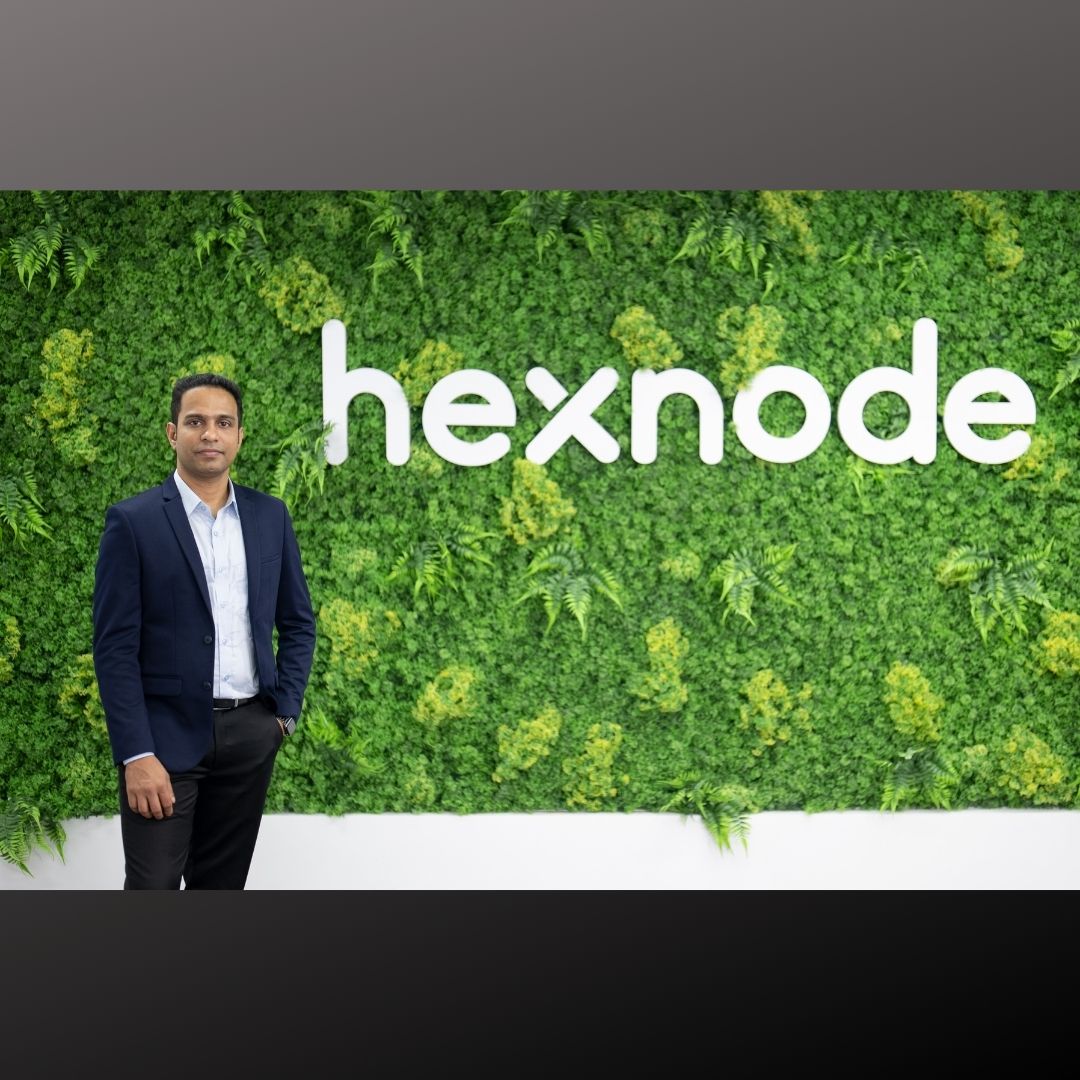Hexnode, powered by Mitsogo, a leading Unified Endpoint Management (UEM) and security solutions provider, has inaugurated a new hub in Chennai, marking another milestone in the company’s decade-long journey. A venture that started off with a group of four has expanded by leaps and bounds, growing its footprint both domestically and abroad. With the rising demand in the UEM market, Hexnode has been scaling the workforce for over a year now. The company, which first established its presence in India via its Kochi office in 2013, opened a temporary office in Chennai last September while the bigger office was being built. About 450 workstations and rooms allocated to various functionaries are housed in this new 40,000 square foot workplace. The Chennai office is currently the biggest of the company’s six offices worldwide.
“The talent pool in India is diverse, and we intend to bring both experienced and fresh resources into the field. Being a product-based company, it isn’t easy to find the right talent, and once they join, their skills need to be fine-tuned. However, in these months of being in Chennai, the recruitment process has been a lot smoother. We were able to find impressive talent in bigger numbers and in a short span of time”, says Apu Pavithran, CEO and Founder of Hexnode | Mitsogo.
Mitsogo had expressed plans to hire 250 freshers by 2022 when they started operations in Chennai last September. So far, there have been more than 160 hires, and plans to continue its hiring through the year. The company’s expansion plans do not stop at Chennai. In a few years, Mitsogo plans to extend to every major IT hotspot in India.
“Cybersecurity has become a national priority, and governments in many nations have taken steps to address these cybersecurity challenges. Sooner than later, as digital adoption increases, we will also witness comparable changes in India. Cybersecurity is no longer a matter than can be avoided or procrastinated because the longer you wait to secure your business, the more vulnerable you are to threats and attacks. SMBs are the easier targets for the attackers because they are the most exposed ones”, says Apu on the importance of enterprise data security.
About 54% of Indian businesses regard cybersecurity as a barrier to their digital endeavour. DDoS attacks, cloud infrastructure security, and data thefts are just a few of the issues that a typical Indian corporate faces. Enterprises throughout the world take an average of seven days to respond to cybersecurity breaches; however, Indian companies take an average of nine days. When it comes to dealing with cybersecurity risks and assaults, these figures placed India nearly at the bottom of the list. In 2021, cyber threats on small and medium-sized Indian businesses cost a loss of more than Rs 3.5 Cr. While many of them couldn’t rebound back, others have taken their first step of being digitally defensive. With the European Union implementing GDPR, other countries have been revamping their privacy bills. Apart from the Information Technology Act, India is in the process of enacting the Personal Data Protection (PDP) Bill, dedicated to ensuring the privacy of its population. The government’s Digital India initiatives have encouraged enterprises to enforce cybersecurity standards, putting the country in the top ten of the Global Cybersecurity Index.
While the India Cyber Security Strategy is being developed, some non-negotiable components in our overall strategy to combating cybercrime in India are required. The demand for enterprise security solutions is expected to skyrocket in the coming years, particularly in India, where SMBs are still in the formative stage of adopting digital solutions. Security solutions will no longer be a ‘good to have’ solution, rather; it will be critical for businesses to be equipped as cyber threats have been rising at an alarming rate. With 68% of India’s SMBs prepping to go digital, it would be unwise not to invest in cybersecurity early on, given that bigger enterprises that have invested millions in cybersecurity are finding it difficult to survive an attack these days. With Unified Endpoint Management (UEM) being a flexible solution to the pandemic-driven change, the global UEM market is expected to reach $53.65 billion by 2030. Businesses have been adopting mobility solutions that help them manage their anywhere device fleet. Countries including China and India have been investing in developing their cyber infrastructure, and the UEM market is expected to grow at a rapid pace in the APAC region. Acceptance of BYOD, advent of IoT, and adoption of hybrid work have changed the rhythm of work culture. Businesses will soon adopt solutions that can inculcate the trends along with ensuring security.


